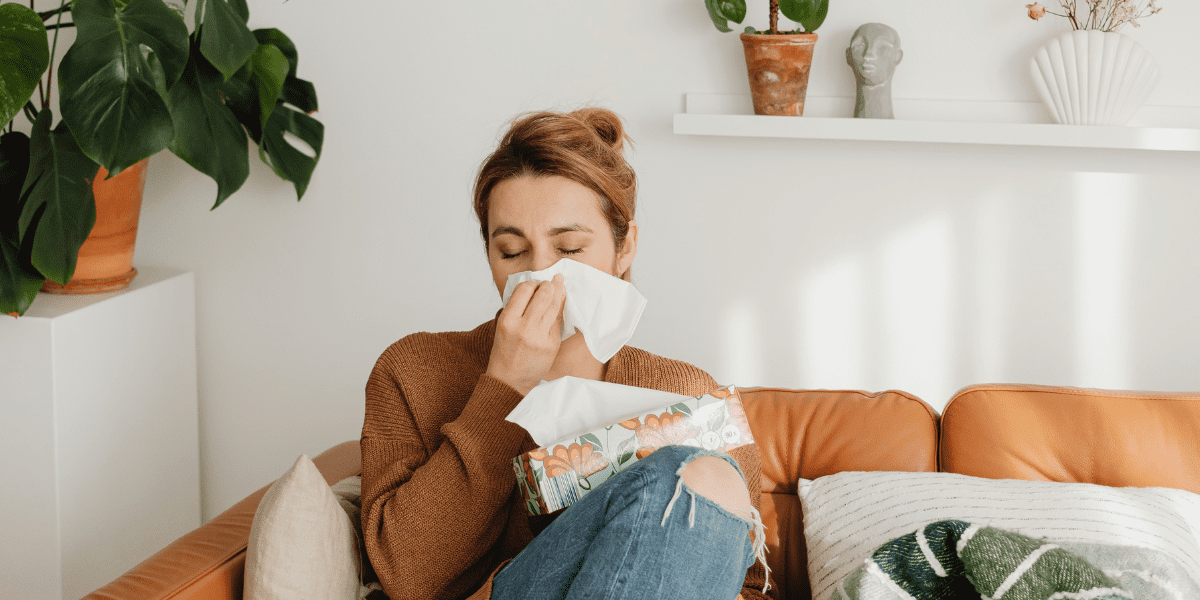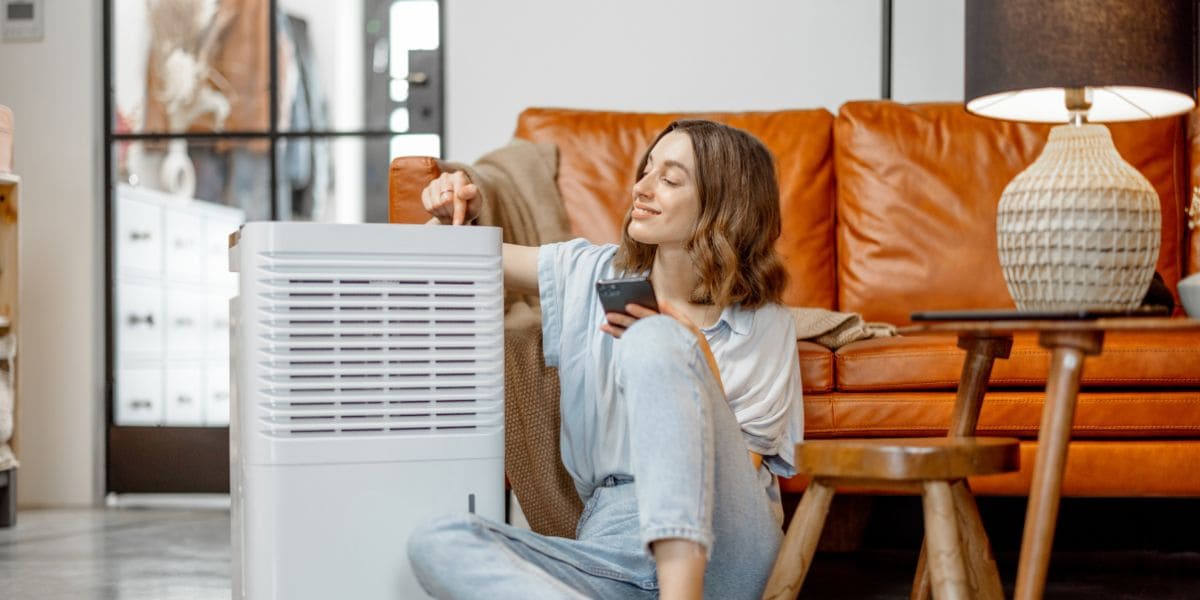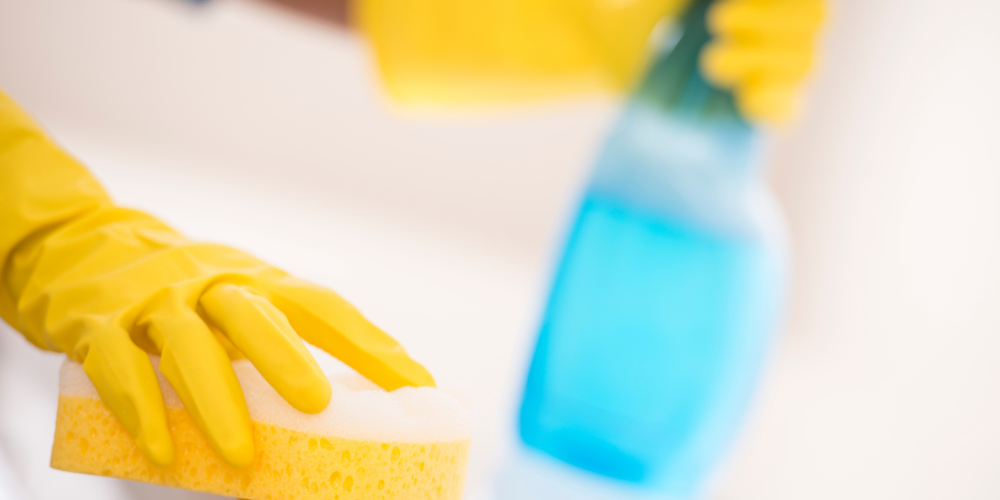The frozen season is subsiding, and we’re all grateful for little signs of returning greenscapes and spring buds. However, with this resurgence in plant life comes a whole new crop of allergies to things in bloom. Keeping allergies at bay is important to everyone’s health and quality of life.
What Causes Spring Allergies?
Spring allergies start as soon as the winter weather abates in New Jersey. Often, this is late February to early March, but every year is a little different. As flowers, grasses, and trees bloom, many people notice their spring allergy symptoms rise. The timeline for the peak of your allergy symptoms will depend on the blooming timelines for the species that trigger your allergies. Everyone experiences their spring allergies on a personalized timeline, but if you can identify the culprit via research or allergy testing, you’ll have a better idea of when you can expect to feel better.
Spring Allergy Symptoms
Spring allergy symptoms can be challenging to differentiate from other common respiratory ailments like a cold, COVID-19, or the flu. Spring allergy symptoms include:
-
Cough
-
Sneezing
-
Runny Nose
-
Sore Throat
-
Itchy, Watery Eyes
-
Hives or Other Skin Irritation
If you experience a fever, body aches, thickening mucus, or congestion that moves throughout the body as your symptoms progress, you are more likely to have an infection than allergies. Of course, we’re not doctors; you should secure medical advice to get the necessary care!
Strategies to Fight Spring Allergies in Your Apartment
There’s plenty you can do to keep spring allergies at bay in your living space. Here are some of our top tips for reducing spring allergies in your apartment.
Ditch the Dust
Dust mites are a huge culprit for indoor allergies, and they’re often at an all-time high after a winter of being cooped up indoors. Spring cleaning is famous for a reason. Decluttering reduces surfaces from collecting dust and allows you to reach seldom-seen corners and remove the winter’s build-up.
Vacuum
Vacuuming is an essential part of your dust-removal routine. Clean top-to-bottom so you pick up falling debris as you go, and finish by running your vacuum, even if you used it earlier in your cleaning routine. Your vacuum is an excellent tool to remove dust and ensure it doesn’t recirculate. Be sure to vacuum your soft surfaces, such as sofas, with a smaller vacuum or hose attachment if possible.
Move Everything
If you've been in your spot for more than a few months, you must move your large furniture and sweep or vacuum underneath. The underside of your stationary objects always provides an unpleasant amount of filth, but you sometimes discover a long-lost pen, trinket, or other items you’ve written off for lost. Bonus!
Microfiber Clothes
One of the challenges of removing dust is trapping it so it doesn’t simply fall somewhere else. Microfiber cloths are excellent for picking up and holding onto small particles, which helps to remove any offending allergen while you clean.
The Weather Matters
We all love to open the windows and let in the breeze. If you struggle with allergies, you might need to do so strategically. Reducing allergens indoors sometimes calls for attending to the situation outdoors. Tuning into your weather will help you decide how much fresh air from outside you’d like in your apartment on a given day.
Watch the Pollen Count
Watch your weather forecast to hear about the pollen count in your area. Head here for a tool that provides localized daily pollen count data for New Jersey. Shut your windows and plan to stay indoors if the pollen count soars.
Windy Days Are the Worst
Wind moves pollen further, faster. This means you’ll likely get a larger serving of the stuff that’s bothering you in any given space. Keep your windows closed on windy days to keep the pollen count down.
Clear the Air
Keep your apartment allergen-free by protecting the clean air you’ve worked so hard to create inside. Here are some of our expert-recommended tips to improve your indoor air quality.
Run the AC- Air conditioning filters allergens and circulates clean air when you’ve got your windows closed because it’s a windy day and the pollen count is high.
HEPA filters- Freestanding air filters can round out your allergy-defense strategy and create comfortable indoor spaces. From high-end to inexpensive, a HEPA filter is an excellent investment to reduce spring allergies.
Humidifiers- Whether you’ve got a stuffy nose from existing allergies, or simply enjoy comfortable temperatures and air quality in your apartment, adding a humidifier also makes it harder for errant allergens to circulate.
Manage Your Spring Allergy Symptoms
Over-the-Counter Meds
Your doctor is the best source of information for the right medicine to manage your allergies. There are plenty of over-the-counter options that used to be prescription-only. Give each a few days of regular use to do its thing before you decide whether it's a good fit for you.
Comfort Care
There’s plenty you can do to address the symptoms of spring allergies. Try a nasal saline rinse, neti pot, or steam if you're feeling stuffy. Gargle with salt water to clear a sore and cloggy throat. Use eye drops to address itchy discomfort.
Ready to Live in Apartment Bliss?
With vibrant rental communities in Frenchtown, Somerset, and Bridgewater, NJ, Country Classics would be thrilled to offer you your next slice of apartment bliss. Contact us here to connect about your next rental!







Leave a Comment